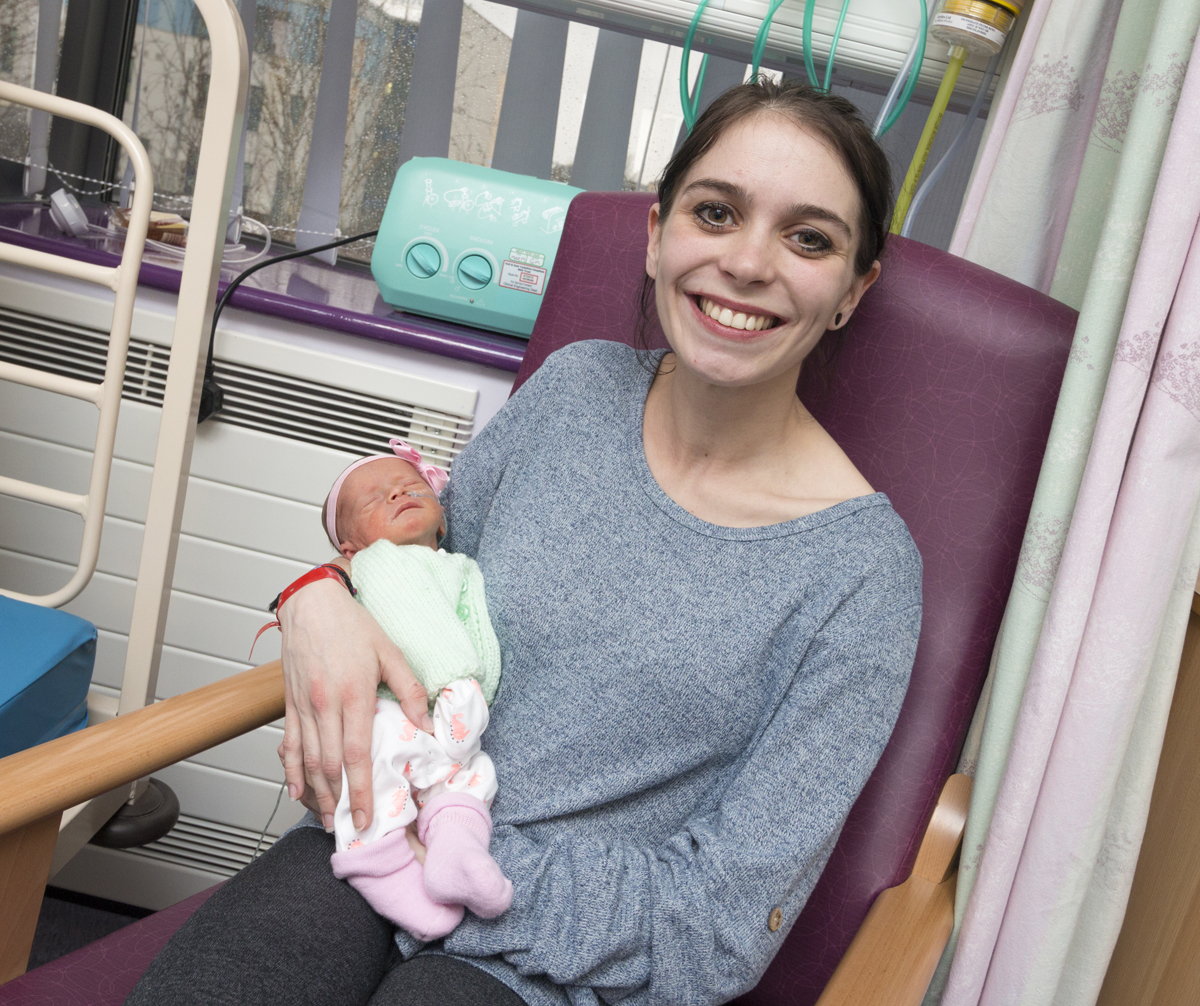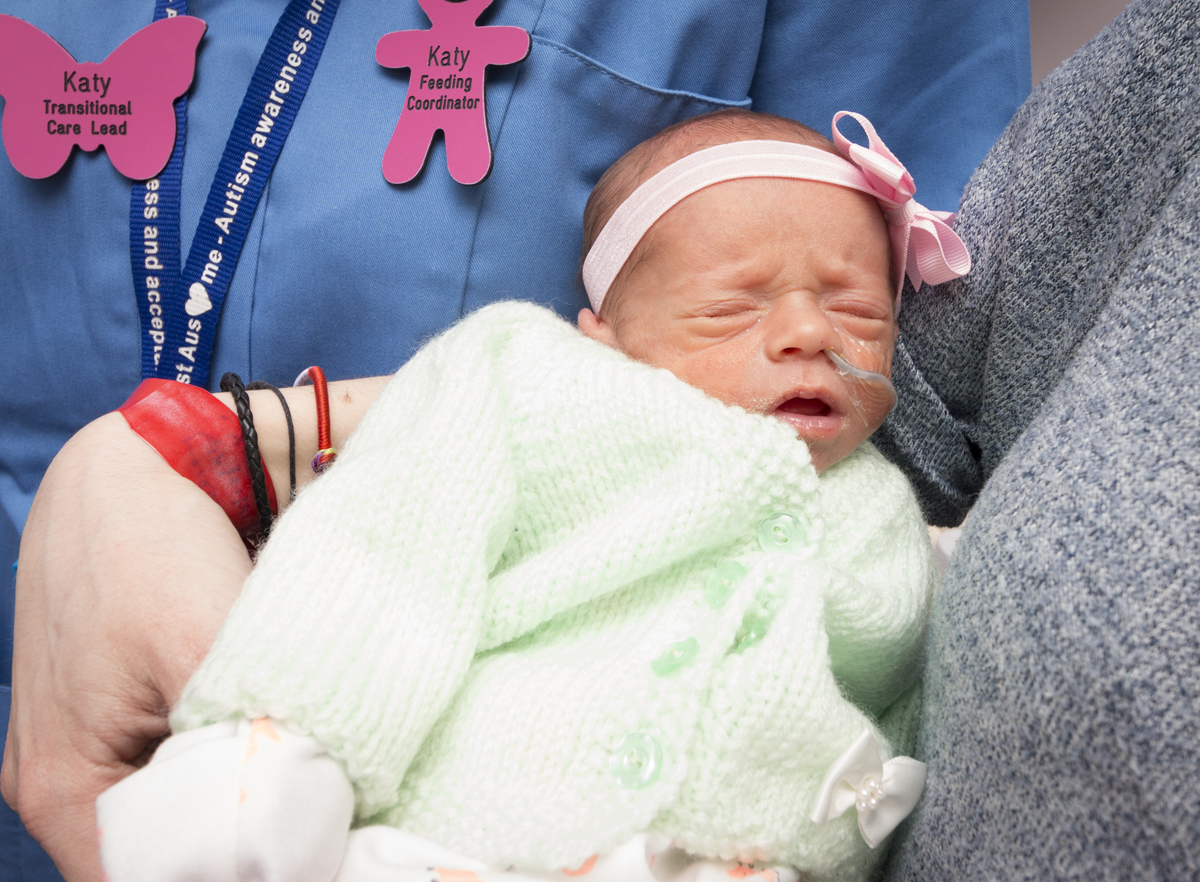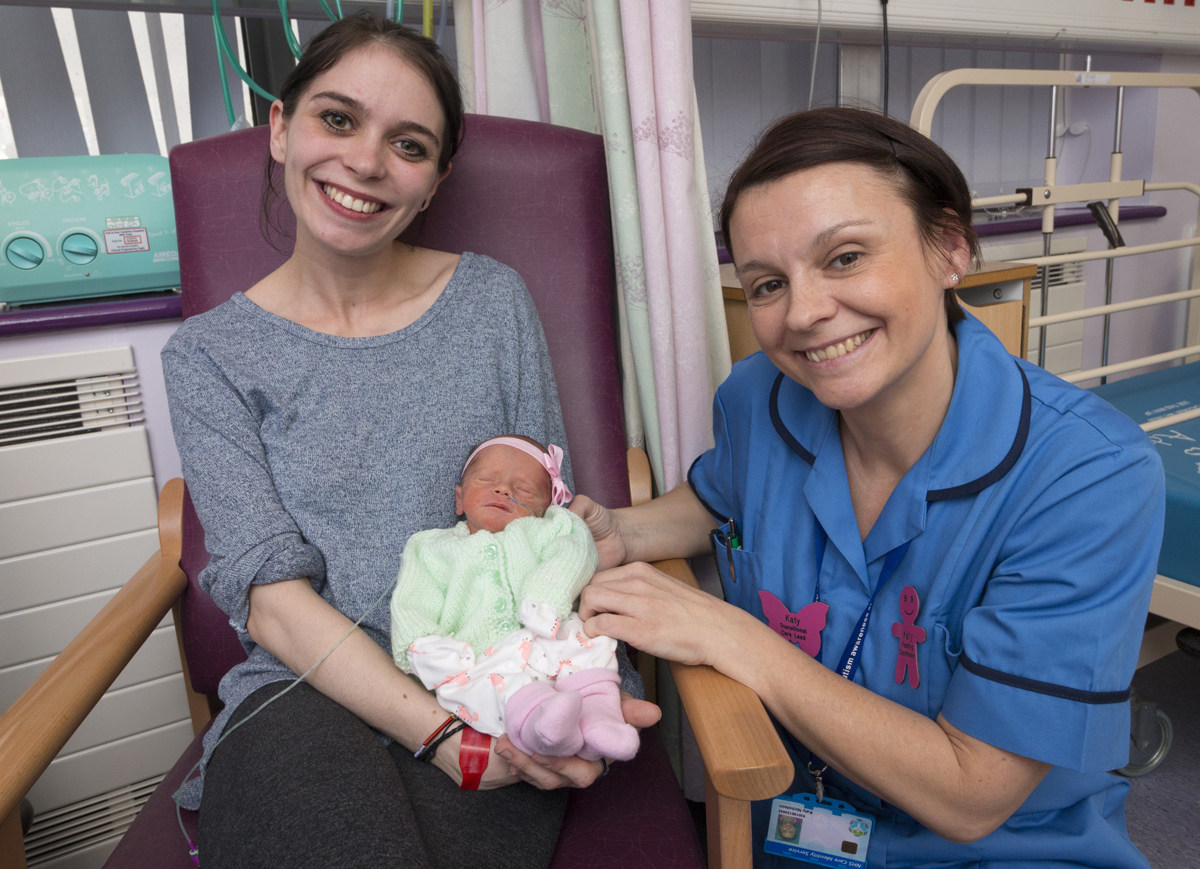A Hull mum has told how a special team of neonatal nurses and midwives supported her after her baby daughter was born six weeks early.
Emily Kelsey, 23, went into labour and gave birth to baby Aria on April 6 when she was 34 weeks into her pregnancy.
Weighing just over 1.8kg or four pounds, Aria and Emily spent six days in Transitional Care, a four-cot unit on postnatal Rowan Ward at Hull Women and Children’s Hospital.
Transitional Care is where mothers can stay with their new-born babies for additional support from neonatal nurses before they are ready to go home. Most mothers stay in the unit for a few days although the longest stay has been two weeks.

Emily, now home in Park Avenue with baby Aria, partner Jonathan and two-year-old son Elijah, said: “The support I got was phenomenal. I could ask anything and the nurses were always there to help.
“I had to check Aria’s stomach acid using a syringe put into her belly before feeding and I was a bit worried about doing it at first. But I learned how to do it with their support and it gave me confidence to do it on my own.”
Nursing staff at Hull’s Neonatal Intensive Care Unit (NICU) began supporting transitional care in November 2017 on a dedicated area of the postnatal ward, ensuring the best care could be given to babies and their families in the most appropriate place.
Neonatal nurses at Hull University Teaching Hospitals NHS Trust provide specialist care for babies, who could require nasogastric tubes for feeding or drugs through IV drips, in the first few days after birth while midwives provide crucial support for the mum.
TC lead Katy Nicholson, who is also the neonatal feeding co-ordinator, said: “Transitional Care is an in-between stage where the baby is not yet ready to go home and still needs some extra support with feeding and growing.
“The neonatal nurses work with the midwives to empower the mum in becoming the sole carer..
“The babies have to meet certain criteria for Transitional Care, such as being born at a minimum of 34 weeks and weighing from 1.6kg upwards. The maximum medical support needed for TC babies is tube feeding, IV antibiotics or phototherapy if they are jaundiced.”

Baby Aria
Transitional Care means neonatal ICU nurses and midwives work closely together, ensuring effective communication between our two teams and services to provide the best care for both mother and baby. It ensures additional support is there for families whose babies require an extra level of nursing before going home.
As the service evolves, the plan is for families of babies on NICU to use Transitional Care as a “step down” from the high intensity nursing environment, allowing other sick babies to be transferred onto the unit.
It also means parents can gain confidence in looking after babies born prematurely or with additional needs before they are discharged.
Katy Nicholson, who has worked at the trust for 22 years, said: “Transitional Care means neonatal services and maternity are working closely together, ensuring effective communication between our two teams and services to provide the best care for both mother and baby.
“It means mothers and babies are not separated and can stay together, breastfeeding and expressing of breast milk can be established more effectively and families gain the confidence in looking after babies with special care needs before they go home.
“Babies are discharged home quicker due to the support they are receiving.”

